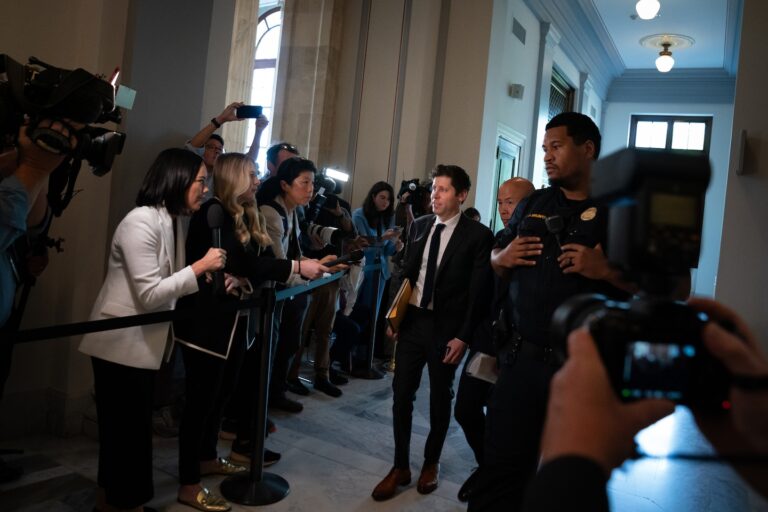The senators also asked the company for information about employee contracts that could silence workers who want to report risks to regulators. In a July letter to the Securities and Exchange Commission, a whistleblower at Open AI said he had complained to the commission that the company illegally issued restrictive severance, non-disclosure and employee contracts that could penalize workers who wanted to raise concerns with federal regulators.
Earlier this month, OpenAI spokesperson Hannah Wong said in a statement to The Washington Post that the company had “made significant changes to our termination process and removed non-disparagement clauses from employee contracts.”
The letter comes amid growing employee concerns that OpenAI is prioritizing profits over safety in its technology development. The letter cites a July report by The Washington Post that detailed how OpenAI rushed to develop its latest AI model, GPT-4 Omni, to meet a May release date. Company executives went ahead with the release despite employee concerns about the timeframe, rushing through comprehensive safety testing and undermining safety pledges they made to the White House in July 2023.
Get caught up in
Stories to keep you up to date
“Given OpenAI’s status as a leading AI company, it is important that the public can trust the safety and security of its systems,” the senators wrote. “This includes the company’s governance structure and the thoroughness of its safety testing, its hiring practices, its adherence to its public promises and mission, and its cybersecurity policies.”
“Artificial intelligence is a transformative emerging technology and we recognize its importance to U.S. competitiveness and national security,” OpenAI spokesperson Liz Bourgeois said in a statement. “We take our role in developing safe and secure AI very seriously, and will continue to work with policymakers to establish appropriate safeguards.”
Lawmakers including Sen. Chuck Grassley (R-Iowa) have said AI company employees need to be able to provide Congress with a clear understanding of AI technologies, including their concerns and risks, as it seeks to regulate them.
In their letter, the senators called on OpenAI to promise not to enforce the non-disparagement agreement and to “remove other clauses from employee contracts” that could be used to punish those who raise concerns about the company’s practices.
Senate Majority Leader Charles E. Schumer of New York and a bipartisan senator task force recommended $32 billion in AI research and development earlier this year, but critics say the plan is vague and hinders AI’s realization. Other legislative efforts in Congress: As Washington’s attention shifts to the 2024 elections, chances of passing comprehensive legislation this year are diminishing.
In the absence of new legislation from Congress, the White House has relied primarily on voluntary efforts from companies to build safe and trustworthy AI systems. The Biden administration also passed a sweeping AI executive order requiring companies to share testing results on their most powerful models.
The letter also asks Altman whether Open AI will dedicate 20% of its computing resources to research into AI safety, a promise the company made last July when it announced a team dedicated to preventing existential risk. The group, called the “Super Alignment Team,” has since been disbanded and its staff reallocated to other parts of the company.
Senate Democrats called on OpenAI to allow independent experts to evaluate the safety and security of its systems before release, and to make its next generation of foundational AI models available to government agencies for pre-deployment testing. They also called on OpenAI to outline any misuse or safety risks its staff observed after releasing its latest large-scale language models.
Steven Corn, an attorney representing whistleblowers at OpenAI, said the Senate Democrats’ requests “don’t go far enough” to address the chilling effect of preventing employees from speaking out about the company’s practices. “What steps are they taking to dispel that cultural messaging to make OpenAI an organization that welcomes oversight?” he said.
Senate Democrats gave OpenAI until August 13 to meet their demands, including documentation of how it plans to fulfill its voluntary pledge to the Biden administration to protect the public from the misuse of generative AI.
Cohn added that Congress must hold hearings and investigations into OpenAI’s practices.
“Congressional oversight is greatly needed,” Cohn said. “When it comes to technologies that involve the potential risks of artificial intelligence, it’s essential that the government be proactive.”


